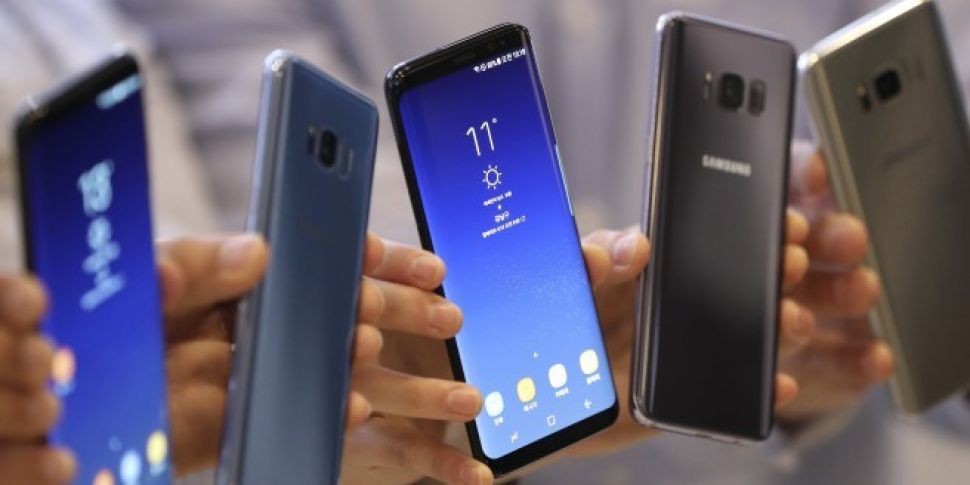In a couple of weeks time, Samsung’s big flashy new smartphone for 2017, the Galaxy S8, will go on sale in Ireland.
It will likely sell in big numbers, promising a cutting-edge design, powerful processor, superb camera, biometric security features and (eventually) its very own voice-activated personal assistant called Bixby.
Samsung however is hoping that one other feature will help boost sales, particularly in the enterprise sector.
DeX is the Galaxy S8’s system of turning your smartphone into a fully-fledged PC, and on the face of it, this sounds like a brilliant idea.
Ever since the iPhone launched a decade ago, and really kick-started the smartphone revolution, the devices we carry around with us everywhere have become incredibly powerful. So it makes a lot of sense to think that they could become our only computing device.
Samsung’s solution — a contraction of “desktop experience” — will see Galaxy S8 users dock their smartphone in a special holder which will be hooked up to a monitor (via HDMI) and keyboard and mouse (via Bluetooth) giving you a traditional desktop experience.
The dock even includes USB ports and an Ethernet port for hooking up to a wired internet connection.

After hooking it up, users will be presented with what looks very much like a Windows desktop environment, but which is actually a specially-designed version of Android, with all your apps available in a traditional windowed environment.
The idea is that businesses will be able to equip staff with the new smartphones to give them the ability to work from anywhere — well, anywhere they have access to a Bluetooth mouse and keyboard and a monitor at least.
It sounds like the future, right?
In fact, this is nothing new. And if the past tells us anything, Samsung’s DeX just won’t take off.
We’ve seen it all before
As far back as 2011, companies have been trying to make this type of system work.
Motorola launched the Atrix smartphone at the Consumer Electronics Show in Las Vegas to wild acclaim because the phone could be docked to transform it into a PC or laptop. It sounded great and was a critical success.
However it was a commercial flop and was killed by Google just a year later.
Fast forward to 2016 and Microsoft announced Windows Continuum.
This seemed to make even more sense. Microsoft’s smartphones ran a version of Windows 10 already, so hooking them up to a monitor, keyboard and mouse sounded like a natural next step.

Microsoft Windows kiosk in the Time Warner Center in New York (PA)
Again, many praised the idea, but when it came to people actually using it, Continuum just didn’t appeal.
Different functions
The central problem with all these solutions is that while a smartphone is an incredibly powerful tool, it is not a desktop computer — and vice versa.
A smartphone is designed to be portable, to carry out quick tasks in the blink of an eye — taking a photograph, sending a Snap, checking your Twitter feed, playing Clash of Clans. It is not designed for multi-tabbed browsing or heavy-duty photo editing.
Samsung says it has worked with the likes of Microsoft and Adobe to tweak the interfaces of their Android apps for the desktop environment, but the simple fact is that the people who use this software on a daily basis need it to work just as they expect, all the time.
Another problem for Samsung is getting app developers to get on board to update their apps to support this environment. As we have seen with Android tablets, developers are not so keen to do this, preferring to work on iPad-specific apps instead.
The simple fact is, if smartphones were really capable of replacing our desktops, then Apple’s iPhone would be offering the feature. Yes, Apple does typically follows the lead of others with new features, but it has already seen Motorola, Microsoft and now Samsung all try this, with little indication it will follow suit.
Apple has applied for a patent to turn an iPhone into a touchscreen laptop, but there is little indication that the company is actually pursuing this avenue.
Samsung’s DeX will work for some people, just as the Atrix and Continuum did. But that number will be very small.
Given the smartphone market is all about the numbers these days, I think Samsung’s solution will be consigned to the list of technologies-that-looked-great-but-didn’t-really-work.









